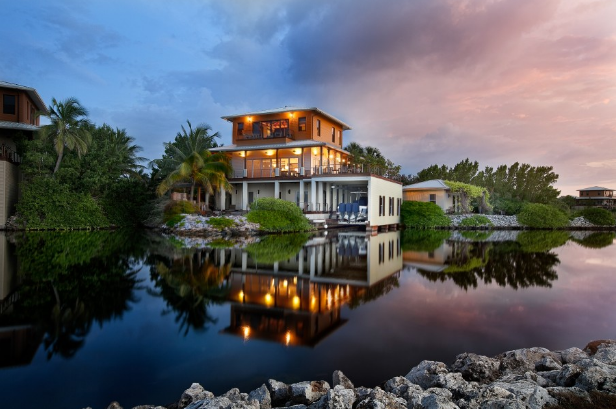
- February 24, 2020
- Real Estate
- JanTomkins
Why Investors are Pouring Millions into the Cayman Islands Property Market
Investor-friendly regulations in a tax-neutral, vibrant economy have set the Cayman Islands property market on a roll in recent years.
Investors have long flocked to the Cayman Islands due to its tax-neutral status and idyllic Caribbean holiday setting. Many also see the potential return on investment offered by the Cayman Islands luxury property market that has seen strong growth in recent years, a trend that continues today. Buyers now include retirees looking for permanent residence as well as investors looking for rental income, a holiday home, or a good return on investment when selling, or undeveloped Cayman Islands land for sale for other investment projects.
Temporary expatriates on short to midterm employment contracts see the attraction of investing in the Cayman Islands residential properties, working out that if you plan to stay for some time a mortgage tends to work out cheaper than rent over a three- to five-year period – with the bonus of a tax-free windfall on the sale when they leave.
Vacation or non-resident buyers tend to focus on beachfront condo purchases for hassle-free maintenance and because there are more condos than houses to choose from on the beach and water, where vacationers prefer to be.
Investors looking for excellent returns on short and long term rentals look to Seven Mile Beach, and also many purchase vacation/rental million dollar properties in Rum Point and Cayman Kai. When they are not in residence they let the property work for them, renting to tourists and short-term visitors.
In the past decade, overnight stays have boomed because of new hotel room stock and wider availability of residential room/condo/villa rentals. This shows no sign of abating as the Department of Tourism continues to report annual increases of between 14% and 17% in visitor numbers.
In 2018, a record 2.38 million people visited the Cayman Islands, an 11% increase over 2017, according to Department of Tourism figures. Tourism accounts for around 30% of the islands’ GDP.
Meanwhile, the George Town port and the ongoing redevelopment proposals will potentially add further berthing facilities for cruise ships and mega yachts. Furthermore, there are a number of significant infrastructure projects currently under construction on Grand Cayman. This will likely lead to greater demand and activity in the Cayman Islands residential and commercial real estate sector.
Regular flights to and from 25 gateway cities as well as services to Jamaica, Cuba and other Caribbean countries operate on a daily basis. Multiple daily flights from Miami Airport ensure easy connections to Europe and the rest of the world. Two cruise ship terminals on Grand Cayman connect with major ports, including Miami and New York.
This all points to further increases in property demand and tourist arrivals in 2020. Add in the investment-friendly advantages that the Cayman Islands offers, and you have a very potent and profitable property investment environment.
The fundamental advantages include:
-
No direct taxes imposed by the Cayman government: no annual property tax, no capital gains tax, no inheritance taxes, no income tax, no non-resident tax, and no sales tax.
-
A flat one off payment of 7.5% for stamp duty.
-
A well-regulated property market, where the Cayman’s Land Registry office records every piece of property under a unique block and parcel number and the Government guarantees the accuracy of the entries.
-
No restrictions on foreign ownership of the real estate in the Cayman Islands.
-
A stable government, sophisticated infrastructure and a strong economy based on international banking and tourism. Caymanians enjoy one of the highest standards of living in the world. Unemployment, at 2.8%, is at its lowest level since 2006. The population is rising steadily and sits at around 70,000 people, 50% of whom are expatriates. It is a very safe place for visitors and their families.
-
A thriving long and short-term rental market offering great investment yields and returns.
With these attractive incentives, it’s no surprise that buying a property in the Cayman Islands is highly attractive to canny investors looking for opportunities.




